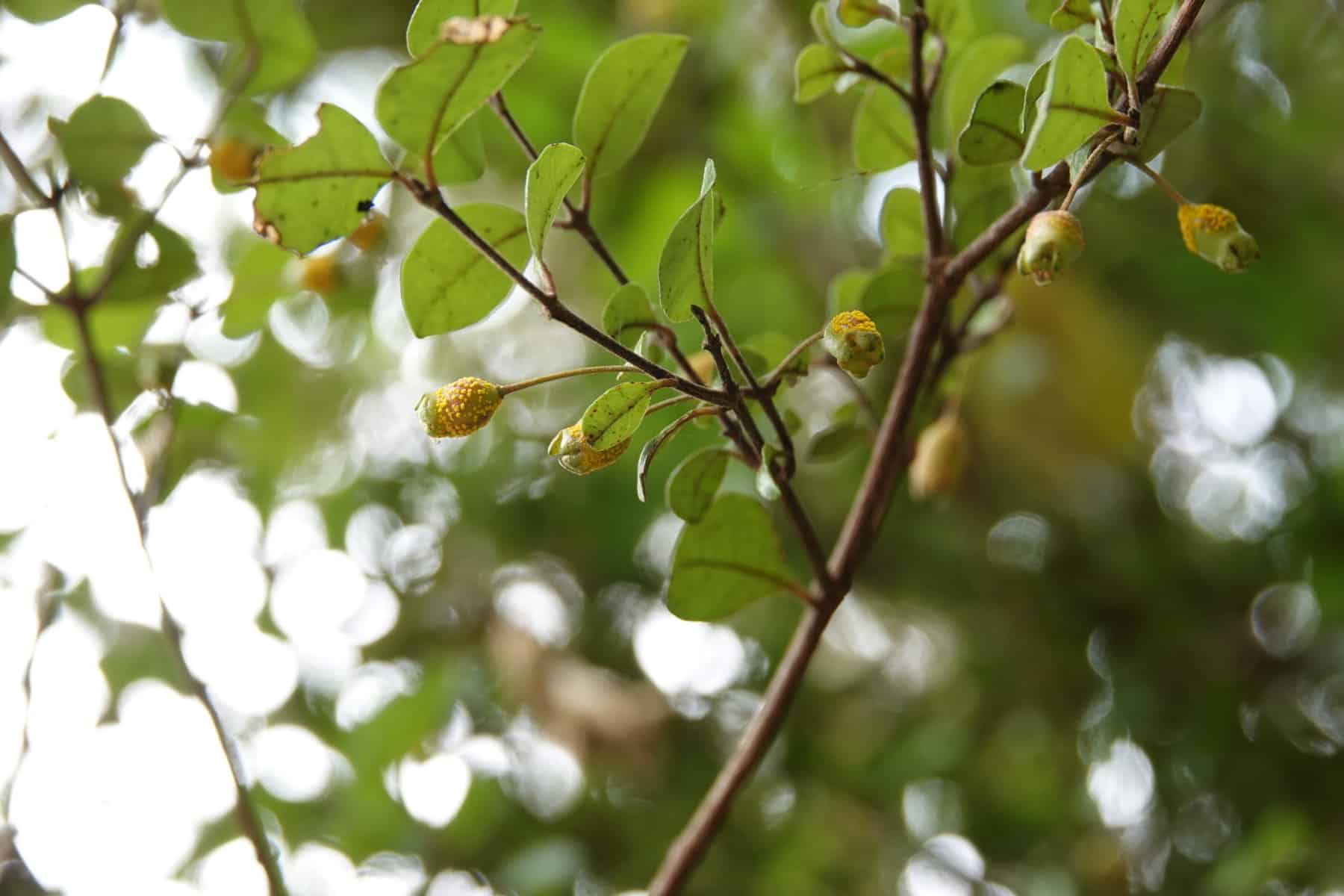Previous research has found that in higher altitude and cooler southern areas, temperatures below 12°C during winter cause the latent period of myrtle rust (Austropuccinia psidii) to extend. The latent period is the time between the infection of a host plant and the production of new spores.
In the cooler areas of the country, myrtle rust will often remain latent over the entire winter period, until the weather warms again. However, in warmer areas of the country, the pathogen is able to continue its infection cycle throughout the winter months. If the cycle of infection is continuing throughout the winter, once spring rolls around the increase of myrtle rust will be earlier and faster, causing more damage to the host plant.
To investigate this, daily temperature data over three years was used to model the potential number of latent periods per month in June, July and August, based on the relationship between air temperature and latent period length for Lophomyrtus spp. Temperature data from five locations in the North Island and upper South Island was used.
The results of this work are showing that due to warmer winter temperatures in 2020 compared to 2018 and 2019, there were a greater number of latent periods per month between June and August 2020 than the years before. This suggests that the infection cycles of myrtle rust are continuing over winter, particularly in the East Cape area. Looking further south, the number of latent periods per month was generally lower than those up north.
This research shows that areas with warmer winter temperatures are at higher risk of infection with myrtle rust, increasing the damage to host species. As such, a warming climate will likely mean that there is an increased threat from this pathogen to Myrtaceae species throughout the country.
You can read more about this research here.
